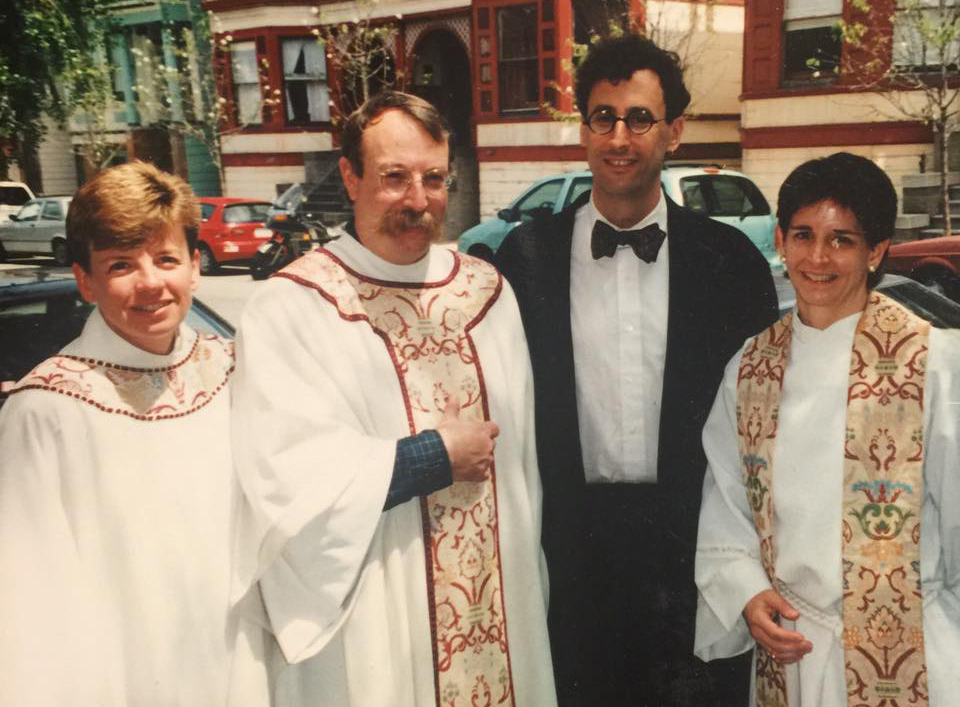Liturgy of the Word

Left to right: Rev. Penny Nixon, Rev. Jim Mitulski, playwright Tony Kushner, and Rev. Karen Foster. In 1998 MCCSF commissioned a stained glass skylight inspired by a monologue from the play Angels in America. Kushner spoke at the dedication ceremony on April 26, 1998. Photographer unknown. Courtesy of Jim Mitulski.
After the readings, the preacher delivered a sermon – a kind of sacred lecture – that used those texts to impart spiritual knowledge, teach religious lessons, or make meaning of the moment the community was living through. Most sermons at MCCSF were preached by clergy who were on staff at the church. Coming from a range of Christian traditions, they had different perspectives on how to understand sacred texts and what kinds of religious messages the congregation needed to hear. But all shared a commitment to liberation theology and its approach to interpreting the Bible from the perspective of the marginalized.
12
Rev. Penny Nixon, MCCSF co-pastor from 1995 – 2000 and senior pastor from 2000 – 2007, preached on the Gospel of Mark. MCCSF Archive, November 20, 1993.
Mark 5: 1 –20
They went across the lake to the region of the Gerasenes. When Jesus got out of the boat, a man with an impure spirit came from the tombs to meet him. This man lived in the tombs, and no one could bind him anymore, not even with a chain.
The story in Mark 5: 1 – 20 is about Jesus healing a man who was found living among the tombs. He healed the man by exorcising the demons that were possessing him and sending them into a herd of pigs. In Reverend Penny Nixon’s telling, the story is about how Jesus and God are found among the socially scorned and emotionally suffering. The lesson is that God is with us in our most profound pain and that presence with pain is what ultimately heals. She links that to the pain gays and lesbians experience when pushed to social edges and affirms that even when the rest of the world can’t see, hear, and appreciate that pain, Jesus and God do. And that their healing presence is what will help gay and lesbian people re-engage the world and change it.